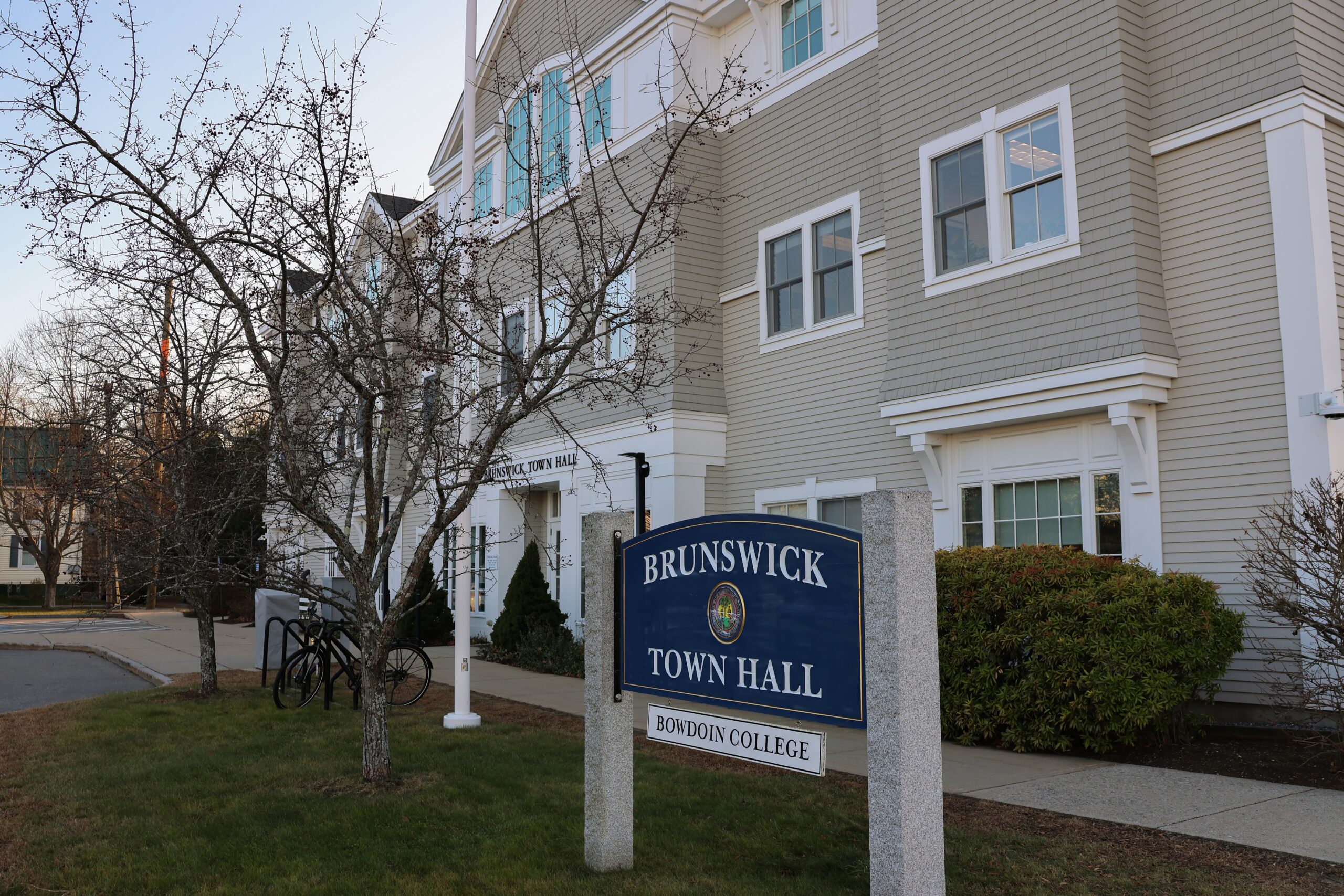Town of Brunswick to update Climate Action Plan
November 22, 2024
 Eoin Gallagher
Eoin GallagherThe Town of Brunswick is in the process of writing a new Climate Action Plan (CAP) to revamp out-of-date initiatives and set new goals for the coming decades.
After receiving a grant from the State of Maine Governor’s Office of Policy Innovation and the Future (GOPIF) in December 2022, Town of Brunswick staff, along with the Climate Action Task Force, a group of community members who were selected to be involved, began officially developing the CAP in May 2023. The updated CAP aims to heavily consider community input gathered from an online survey open until December 5, recurring Public Forums held at Curtis Memorial Library and weekly Climate Action Office Hours at Town Hall.
Professor of Physics and Astronomy Mark Battle, the acting co-chair of the Climate Action Task Force, commented on the importance of a revised CAP.
“[The] town had the rudiments of a Climate Action Plan that was thoughtfully put together by a small group of citizens 10 or 15 years ago, but it was limited in scope…. And so, this [new CAP] is much broader. It’s an aspirational document,” Battle said.
The CAP categorizes its 44 strategies, which include hundreds of actions, into seven main sectors: Municipal Operations, Buildings and Housing, Transportation, Energy and Renewables, Natural Resources, Land Use and Food Systems, Resilience and Public Health, and Waste and Wastewater Management.
Each sector outlines challenges, milestones and actions for achieving the CAP’s main goals for the next few decades. First, the town will look to reduce municipal and community-wide greenhouse gas emissions by 65 percent, as compared to the 2022 baseline, by 2030. Next, Brunswick aims to be net zero for municipal greenhouse gas emissions by 2040. Both these preliminary targets lead to the CAP’s ultimate goal: to be net zero for community-based greenhouse gas emissions, in addition to municipal, by 2050.
Battle recognized the extensive length of the document but argued for the need for intricate detail and bold approaches.
“[The CAP] is overwhelming, but the reason … is because there isn’t a single magic bullet,” Battle said. “When we presented to [the Town Council] our proposed goals,… we gave them three options: to do nothing, to adopt the state level targets or to adopt more aggressive targets. As we phrased it, it wasn’t a choice between good and better, it was a choice between inadequate and barely adequate. They agreed, and we got a unanimous vote from the Town Council to adopt the most aggressive targets.”
Although the CAP has no regulatory power, it has potential to be a highly influential guidebook to assist community members in recognizing their personal impact on the climate while providing tangible actions they can take to help Brunswick reach loftier goals.
Battle noted that the main individual lifestyle adjustments that the CAP suggests revolve around transportation and housing.
“We [hope] to increase the uptake of electric heating and cooling systems.… Then there’s transport,… whether it is [encouraging people to take] public transport,… to get into electric vehicles [or] improving active transport,” Battle said.
Chloë Sheahan ’26, a summer 2024 intern for Ashley Charleson, the town’s Environmental Planner, and current co-leader of Sunrise Bowdoin, also remarked on her work developing the CAP and the impact the Bowdoin community can have on the town’s CAP goals.
“Bowdoin is a big part of Brunswick in general, and I think that [the Climate Action Task Force] made it a goal to include the Bowdoin community … in everything they’re doing…. A project like this is obviously going to affect Bowdoin a lot as well,” Sheahan said.
On December 16, the Climate Action Task Force will officially propose its final draft of the CAP to the Town Council. In these final crucial weeks, Battle urges Bowdoin students and community members to share their perspectives.
“Spreading the word in the community and taking the survey online would be great, because the more people we have taking the survey, the more the Town Council will feel like the community is informed and supportive,” Battle said.
Charlotte Tagupa ’26, a member of Bowdoin Sustainability and previous holder of the student position for the Brunswick Conservation Commission, shared her excitement about the CAP.
“I think it’s really cool that Brunswick is one of the first towns in Maine to really push forward on [making a new CAP],” Tagupa said. “I think in general, given the time, it seems like there’s going to be a lot of drawbacks to federal climate action, so it’s really exciting to see town-level action…. Brunswick has done a really good job involving a lot of different community members,… which is key in getting people excited—when people are sharing their thoughts they are then more invested in seeing it play out.”
Although the development process has taken several years, after the Town Council eventually approve s a version of the CAP, thexhard work really begins.
“After [the CAP is passed], it’s all about implementation, monitoring benchmarks and trying to make things happen,” Battle said. “It’s not just about laying out the plan. It’s about taking the actions, and there are great opportunities for students and Bowdoin community members to get involved in actually changing things and having … some agency, no matter how small the scale.”

Comments
Before submitting a comment, please review our comment policy. Some key points from the policy: